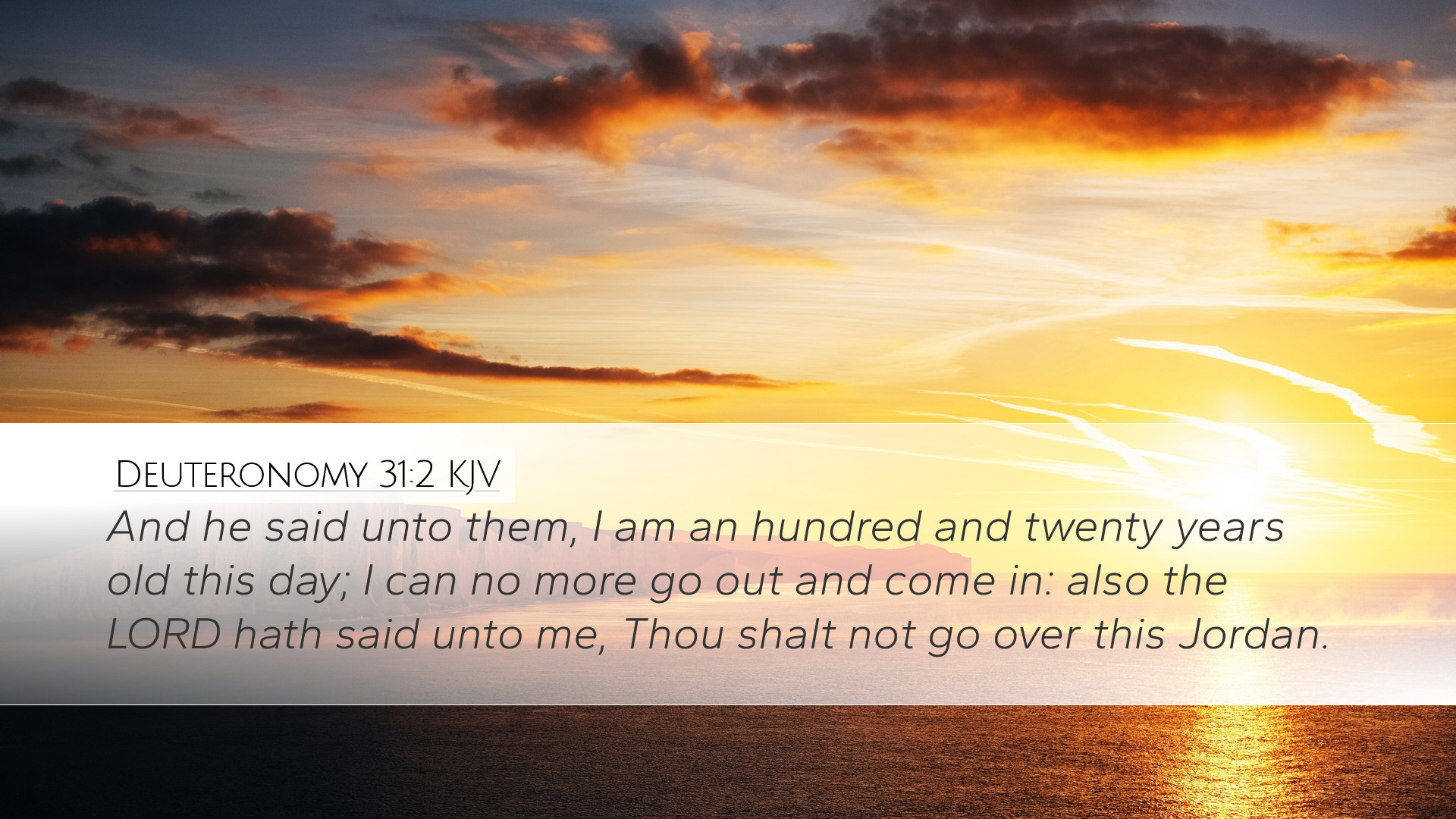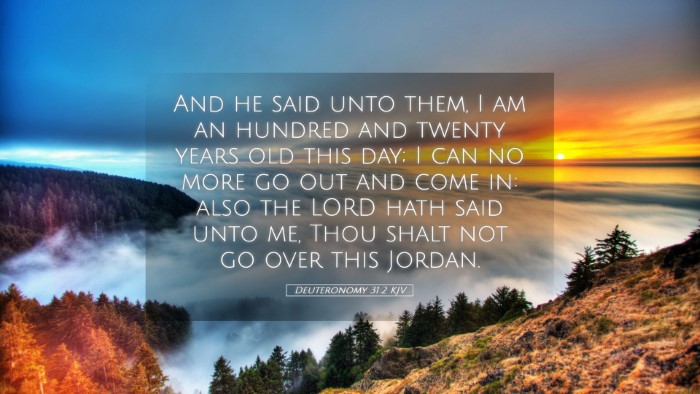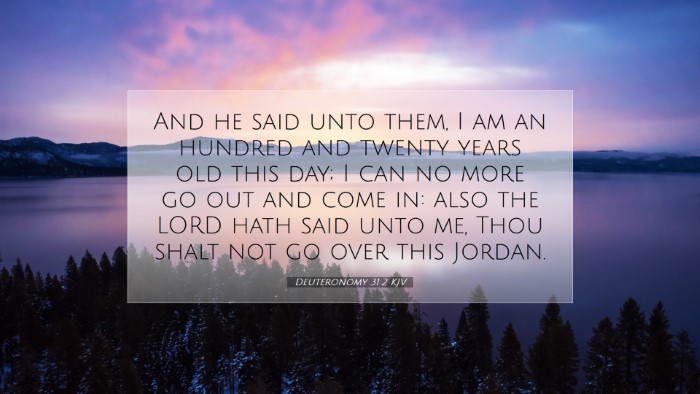Commentary on Deuteronomy 31:2
Deuteronomy 31:2 states: "And he said unto them, I am an hundred and twenty years old this day; I can no more go out and come in: and the LORD hath said unto me, Thou shalt not go over this Jordan." This moment marks a significant point in the life of Moses as he prepares to transfer leadership to Joshua and concludes his journey with Israel.
Context and Setting
The context of this verse is crucial for understanding its theological and practical implications. This passage is set shortly before the Israelites are to cross into the Promised Land, a pivotal moment in their history. Moses, who has led the people through the wilderness for forty years, is approaching the end of his life, marking a transition of leadership. The sense of urgency and importance in these final words cannot be overstated.
Moses’ Age and Condition
- Moses' Age: At 120 years old, Moses reflects on his age as he acknowledges physical limitations. Matthew Henry comments on the natural effects of aging, noting that even great leaders are subject to the common frailties of humanity.
- Physical Limitations: The phrase "I can no more go out and come in" expresses not just physical weariness but also a recognition of his divine appointed end. Adam Clarke explains that Moses’ ministry concludes not just due to age but because God had decreed it, emphasizing that God’s purpose is sovereign in the life of a believer.
The Divine Command
Following Moses’ acknowledgment of his age, he mentions the LORD’s directive: "Thou shalt not go over this Jordan." This divine command holds substantial theological weight.
- God’s Sovereignty: Albert Barnes highlights that God's sovereignty is exhibited in determining the course of history and leaders. It reminds us that God is in command of the destiny of His people.
- Moses’ Unfulfilled Promise: While Moses had taken the people to the brink of the Promised Land, he would not enter it himself due to a previous act of disobedience (Num. 20:12). This reality serves as a sober reminder about the gravity of leadership and the obedience required by God.
The Transfer of Leadership
In this poignant moment, Moses prepares to transfer leadership to Joshua. His declaration is not a moment of resignation but a transition to God’s chosen successor.
- Preparation for Leadership: Moses openly expresses his limitations, setting an example of humility for Joshua and the Israelite community. Matthew Henry discusses how leaders must recognize their limitations and rely on God for the anointing needed to lead effectively.
- Encouragement to Joshua: This incident sets the stage for Joshua’s commissioning, which follows in the subsequent verses. The transition is characterized by encouragement and continuity in leadership, emphasizing the collective responsibility of the community.
Theological Reflections
The implications of Moses’ final words can be explored through various theological lenses.
- Finite Nature of Humanity: Moses’ acknowledgment of his age reminds us of human frailty and the inevitability of death. Adam Clarke articulates the need for humility, reminding readers of the transitory nature of life.
- God’s Plan and Promises: The refusal to allow Moses to enter the Promised Land illustrates God’s commitment to His covenant. It reflects God's justice as well as His faithfulness to His promises to the nation of Israel.
- Legacy of Leadership: By stepping aside, Moses ensures a legacy not rooted in his own greatness but in God’s purpose. His obedience is a testament to faith that transcends personal ambition.
Practical Applications
This verse also prompts various practical applications for contemporary believers.
- Embrace Transition: Pastors and church leaders can glean from Moses’ example by embracing transitions within their ministries positively and prayerfully.
- Value of Reflection: Individuals are encouraged to periodically reflect upon their lives and ministries, acknowledging limitations and the passage of time.
- Dependence on God: Just as Moses relied on God for his calling, believers are called to lean on God for strength and guidance in their missions.
Conclusion
Deuteronomy 31:2 captures a moment of introspection, divine revelation, and preparation for new leadership. The insights drawn from public domain commentaries reveal layers of meaning that are essential for pastors, students, theologians, and Bible scholars. As we reflect on Moses’ words, we are reminded of our dependence on God, the significance of obedience, and the necessity of preparing for the future in faith.


